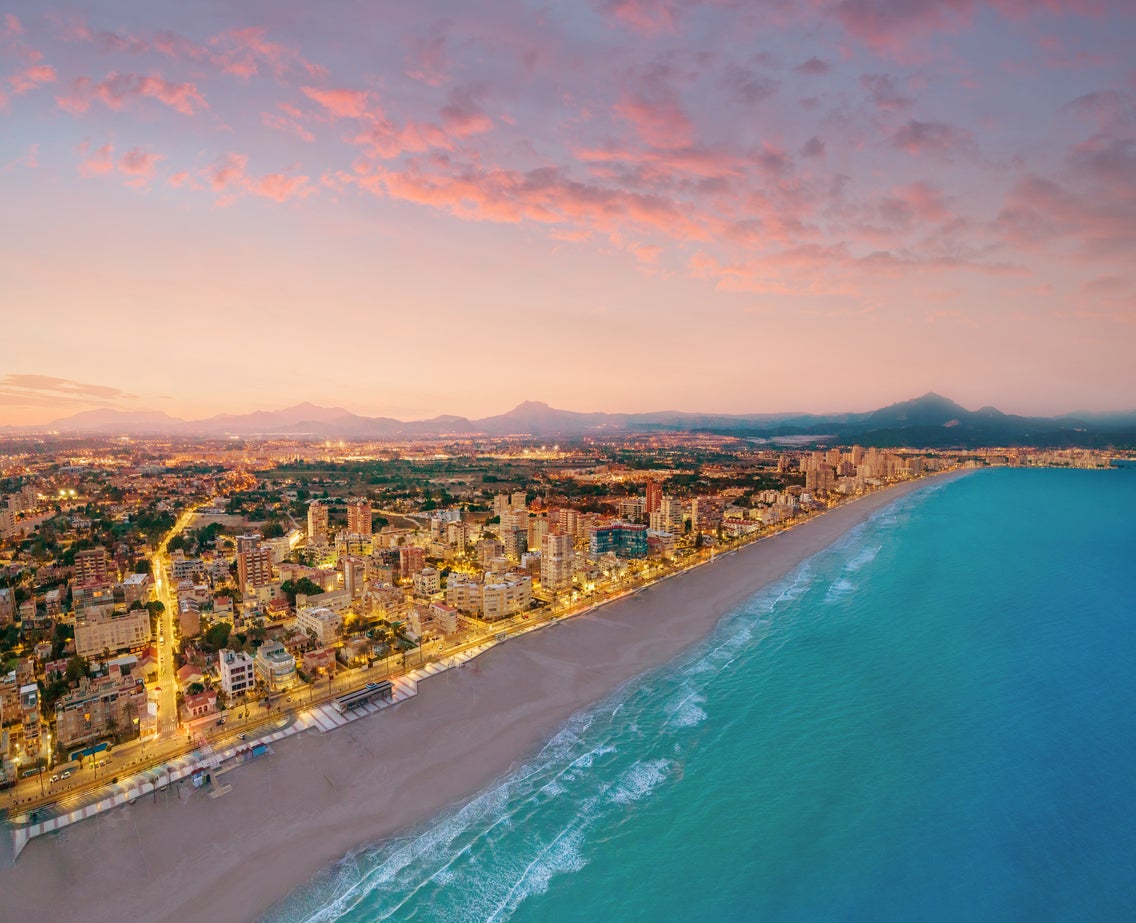Tourists queue for bottled water as another drought hits Spanish holiday destination
In Spain’s key tourist area, one in five inhabitants have a swimming pool
Your support helps us to tell the story
From reproductive rights to climate change to Big Tech, The Independent is on the ground when the story is developing. Whether it's investigating the financials of Elon Musk's pro-Trump PAC or producing our latest documentary, 'The A Word', which shines a light on the American women fighting for reproductive rights, we know how important it is to parse out the facts from the messaging.
At such a critical moment in US history, we need reporters on the ground. Your donation allows us to keep sending journalists to speak to both sides of the story.
The Independent is trusted by Americans across the entire political spectrum. And unlike many other quality news outlets, we choose not to lock Americans out of our reporting and analysis with paywalls. We believe quality journalism should be available to everyone, paid for by those who can afford it.
Your support makes all the difference.A severe drought has rendered tap water undrinkable in several towns along Spain’s Costa Blanca, forcing holidaymakers and locals to queue at distribution points for bottled water to cover their basic needs.
As water levels have dropped, salinity has increased, prompting authorities in some areas to deem tap water unsafe for drinking or cooking. Bottled water is being distributed free of charge.
Overdevelopment, climate change and mass tourism during the summer months when the population of the popular Mediterranean destination swells, have exacerbated the problem, activists say.

In the Marina Alta area, north of the provincial capital Alicante, water consumption soars to 19.67 billion litres in July from 2.3 billion litres in January.
There are nearly 38,000 swimming pools in the area, or one for every five inhabitants, according to the National Statistics Institute. The average for all of Spain is one pool per 35 people.

The lack of water has forced town councils to ban activities such as filling swimming pools, or watering gardens and washing cars during the daytime.
“We’re already entering a climate emergency,” Joan Sala of the environmental group Accio Ecologista-Agro told Reuters, citing poor rainfall in the northern part of Alicante province, which received half the usual amount of rain last year and just 10% of average levels so far this year.
“There needs to be a bit more foresight, because now in the summer there are a lot more people here than in the winter,” said Fernando Sapena, who owns the El Raco De L’arros restaurant in the town of Teulada-Moraira, specialising in paella, a rice-based dish from Valencia.
Traditionally, Valencians attribute the local paella’s distinct flavour to the mineral-rich hard water on tap there.
The drought had also caused over 65 million euros ($72.27 million) in losses to the region’s agriculture sector, farmers’ association ASAJA said in July.
Meanwhile, last week torrential rain struck across Spain’s Balearic islands. Roads were flooded and people forced to evacuate. Spain’s emergency military unit said it had been deployed to Mallorca to help with the situation.
Spanish national weather agency AEMET kept an orange alert on Thursday in the whole area due to the high risk of storms, having downgraded it from red earlier.

Join our commenting forum
Join thought-provoking conversations, follow other Independent readers and see their replies
Comments